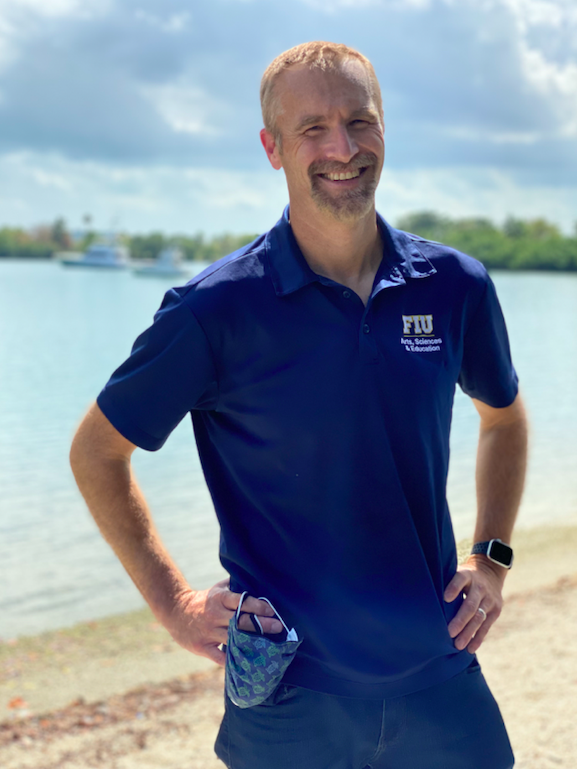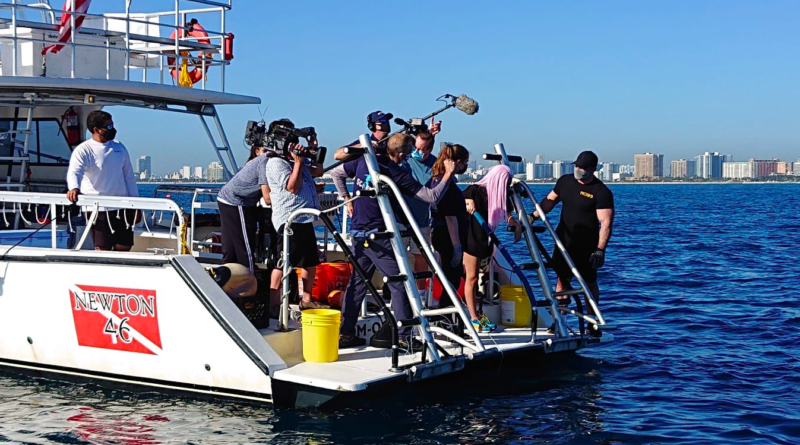INTERVIEW: New SharkFest special focuses on infamous North Carolina shark attack
Photo: This year’s SharkFest includes a special on the Paige Winter story. Photo courtesy of Nat Geo / Provided by Smithhouse Strategy with permission.
National Geographic’s SharkFest is back, and its programming will air not only on the main network, but also Nat Geo WILD, Nat Geo Mundo, Disney XD and the streaming service Disney+. On Monday, July 12, at 10 p.m., viewers can catch the unfortunate and scary tale of a brutal shark attack that occurred a couple years ago off the coast of North Carolina. The special is called Shark Attack Investigation: The Paige Winter Story, and it follows the story of a 17-year-old who lost a leg and portion of her hand to an attacking shark.
One of the experts who was tapped to investigate the matter for Nat Geo is Dr. Mike Heithaus, a marine ecologist who specializes in predatory-prey interactions and the ecological importance of sharks and other large marine species, according to press notes. He has been a common presence on TV specials about sharks and has been featured numerous times on SharkFest.
SharkFest has grown into a summer-long event for Nat Geo and its sister networks. The TV specials this year started airing back on July 5, and they continue for six weeks, with 21 hours of original programming and 60 hours of enhanced content. If viewers are unable to catch the world premiere of Shark Attack Investigation: The Paige Winter Story on July 12, they can watch an encore presentation Aug. 6 at 10 p.m. on Nat Geo WILD. The special also begins streaming July 16 on Disney+.
Recently Hollywood Soapbox exchanged emails with Heithaus about his knowledge of these marine animals. Questions and answers have been slightly edited for style.
Do you feel that these TV documentaries help people better understand sharks?
Other than these documentaries, most people probably form their impressions of sharks from news reports of attacks or even from movies, so they think of sharks as incredibly dangerous and scary. Documentaries give us the opportunity to show what sharks are really like — including that they are not all the same. There are over 500 species of sharks, and most are not dangerous at all. Even for dangerous species, they can be important to ecosystems and are not mindless killing machines biting everything they encounter. Documentaries give us an opportunity to explore these important aspects of sharks.
What are the details of the Paige Winter story that you find most troubling? Was this ‘normal’ behavior?
Paige’s story is one of a really unfortunate accident that had a big effect on Paige, but there isn’t anything that happened that jumps out as out of the ordinary besides bad luck. Paige wasn’t doing anything wrong that caused the attack. Big sharks can be dangerous, and unfortunately Paige was in the wrong place at the wrong time to encounter a shark that decided to attack. There isn’t anything I am aware of that was abnormal about the shark other than the vast majority of the time even big sharks will leave people alone. In many ways, Paige’s story to me is about an incredible person who, despite this event that could have derailed her life plans, has an incredible positive spirit and hasn’t let it change her life goals or plans and is using her experience to help other people see the importance of nature and a healthy environment with sharks in it.
Why do sharks get a bad reputation?
I think the bad reputation comes from their portrayal in movies as monsters that are consciously trying to pursue and eat people, the fact that most people only ever hear about sharks in the context of attacks where people are killed or have massive injuries, and our innate feelings of unease of being in the water where we are relatively helpless compared to sharks.
How important are sharks to the marine environment?
We are still working hard to be able to understand exactly how, when, where and why sharks are important to the marine environment. With more than 500 species they play different roles in ecosystems. But, we are finding they can be critical. For example, sharks can help keep populations of their prey from growing too large and eating too much of their prey, disrupting whole ecosystems. Or, they can scare prey away from some areas, allowing other species to flourish.
For example, in Australia we found that tiger sharks keep big grazers like turtles and sea cows from overgrazing seagrass. And by protecting seagrass, tiger sharks are protecting the habitat for small fish and shellfish that grow up to be species people rely on. If we lose sharks from oceans, bad things are likely to happen. And, with shark populations in trouble in a lot of the world, this is something we need to be concerned about. In fact, in many places we need to be thinking about how to rebuild shark populations not just protect what is left.
When did you first become interested in sharks? Is it a love that goes back to childhood?
I have always loved the oceans since I was a kid growing up in the cornfields of Ohio. Watching TV shows made me want to explore the world. That’s one reason I love doing Sharkfest with National Geographic — hopefully our adventures can inspire the next generation of scientists and ocean enthusiasts! My work on sharks came later. I was studying dolphins and noticed that a lot had scars from shark attacks, so I started working on tiger sharks … and that really changed the course of my career.
By John Soltes / Publisher / John@HollywoodSoapbox.com
SharkFest continues with Shark Attack Investigation: The Paige Winter Story, premiering Monday, July 12 at 10 p.m. on National Geographic. Click here for more information.


